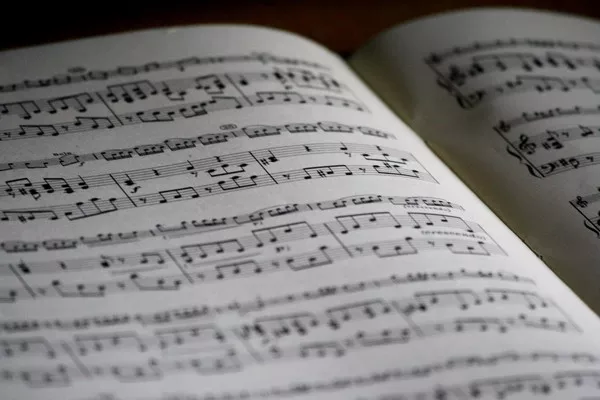The realm of musical theater has offered an array of compelling narratives, stunning performances, and unforgettable melodies that have captivated audiences worldwide. The question of what constitutes the world’s number one musical is a debate that stirs passionate discussions among enthusiasts. Over the years, numerous productions have left an indelible mark on the genre, shaping its history and contributing to its enduring appeal.
Defining the World’s Number One Musical
Defining the paramount musical involves a multi-faceted evaluation encompassing various criteria. The measurement may include critical acclaim, box office success, cultural impact, enduring popularity, and a lasting legacy. Factors such as innovation in storytelling, choreography, music composition, and the ability to resonate across diverse audiences contribute to the consideration of what defines the apex of musical theater.
The Phenomenon of “The Phantom of the Opera”
Among the contenders for the title of the world’s number one musical, Andrew Lloyd Webber’s “The Phantom of the Opera” emerges as a leading force. Premiering in 1986, this timeless masterpiece has achieved remarkable milestones, setting benchmarks in the realm of musical theater. Its longevity, with continuous performances on Broadway and the West End, attests to its enduring popularity.
With haunting melodies and a gripping tale of love, obsession, and tragedy, “The Phantom of the Opera” captures the imagination of audiences worldwide. Its elaborate sets, evocative costumes, and a mesmerizing score have made it an emblem of theatrical excellence, solidifying its place in the annals of musical history.
The Legacy of “Les Misérables”
Victor Hugo’s epic novel, “Les Misérables,” adapted into a musical by Alain Boublil and Claude-Michel Schönberg, stands as another strong contender for the title of the world’s number one musical. Its stirring narrative, enriched with themes of justice, love, and redemption, resonates deeply with audiences across cultures and generations.
“Les Misérables” boasts an impressive record of global success, earning critical acclaim, numerous awards, and a devoted fan base. Its powerful storytelling, emotional depth, and iconic songs such as “I Dreamed a Dream” and “Do You Hear the People Sing?” continue to leave an indelible impact on audiences worldwide.
The Timeless Appeal of “The Lion King”
Transitioning from the classical stage, Disney’s “The Lion King” redefined musical theater with its groundbreaking approach to storytelling and stagecraft. Adapted from the animated film, this theatrical spectacle blends innovative puppetry, vibrant costumes, and a score that captures the essence of the African savanna.
“The Lion King” has garnered widespread acclaim for its visual grandeur and emotional resonance. Its ability to enchant audiences of all ages, coupled with its global success and cultural significance, positions it as a contender for the world’s number one musical, showcasing the power of theatrical storytelling in a visually stunning and emotionally evocative manner.
Cultural Impact of “Hamilton”
In recent years, Lin-Manuel Miranda’s “Hamilton” has stormed into the spotlight, redefining the boundaries of musical theater. With its innovative blend of hip-hop, R&B, and traditional show tunes, “Hamilton” tells the story of Alexander Hamilton in a manner that resonates with contemporary audiences.
Beyond its artistic prowess, “Hamilton” has made significant strides in diversifying and reinvigorating the theater landscape. Its emphasis on representation, coupled with its exploration of American history through a modern lens, has propelled it into the cultural zeitgeist, earning widespread acclaim, numerous accolades, and a dedicated fan base around the globe.
The Enduring Allure of “The Sound of Music”
“The Sound of Music,” with its timeless melodies and heartwarming narrative, remains a beloved classic in the realm of musical theater. Based on the true story of the von Trapp family, this production continues to captivate audiences with its enchanting score composed by Richard Rodgers and Oscar Hammerstein II.
The enduring appeal of “The Sound of Music” lies in its universal themes of love, family, and resilience. Its iconic songs such as “The Sound of Music” and “My Favorite Things” evoke a sense of nostalgia and warmth, ensuring its perpetual place in the hearts of theater enthusiasts worldwide.
Conclusion: The Ever-Evolving Definition
In conclusion, determining the world’s number one musical is a subjective endeavor shaped by personal preferences, cultural influences, and the evolving landscape of the performing arts. Productions like “The Phantom of the Opera,” “Les Misérables,” “The Lion King,” “Hamilton,” and “The Sound of Music” represent a fraction of the diverse tapestry that musical theater offers.
Each musical mentioned holds a distinct place in the history of the genre, contributing in unique ways to its richness and vitality. As theater continues to evolve and new productions emerge, the discussion around the world’s number one musical will persist, reflecting the enduring magic and universal appeal of this art form that continues to enchant audiences around the globe.


























